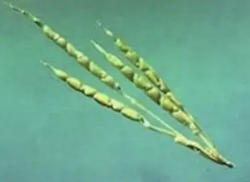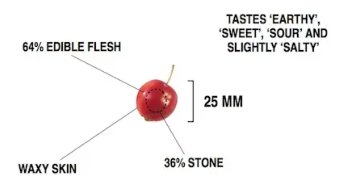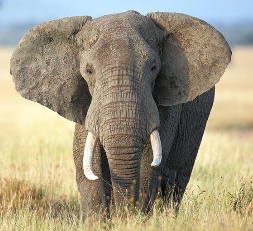So this feed appears to be much better than the ingredients used in the feeds in other studies I’ve looked at. Good.
% Carbs or Total Carbs?
Well there is mixed evidence when it comes to anthropology. Some of our ancestors would have more access to carbohydrates than others long before agriculture came along. Making blanket statements that our ancestors were on ketogenic diets year round is a theory at best.
Dr. Michael Eades has a set of lectures on this topic, all available on YouTube. You might find them interesting. The gist is that we know from radioisotopic analyses what people ate, and the bones from agricultural societies are markedly less healthy than the bones from hunter-gatherer sites.
Not a statement that I made…
The quantities of readily available food stuffs during various epochs of human evolution, goes beyond theoretical…
So you can tell me what any group of people consumed at any given time of year at any point in history, really?
It’s pretty clear from the concentrations of radio-isotopes, apparently. They think they can even tell whether the protein was meat or fish.
Why don’t you watch one of Dr. Eades’s lectures and see what you think? He gives citations to the literature he’s drawing from, so you could go back to the sources, if you think he is interpreting them wrongly.
I have no issues with anthropology but it is far from an exact science. And I have no issue either with folks bringing in anthropological arguments to support keto as a natural condition. However, what you simply cannot do is rely on it as proof. Similarly, it is absurd to employ it to infer that our ancestors were all keto or eschewed available sources of carbohydrate.
Well, I it’s radio-analysis in the service of anthropology or archaeology, but it still feels like physics to me.
And no one is arguing that our ancestors ate no carbohydrate whatsoever (after all, our nearest hominid relations are still plant-eaters), just that it’s not likely that carbohydrate was a significant part of the diet. In corroboration, almost all of the traditional hunter-gatherer societies encountered recently enough for first contact to have been documented regarded vegetables as “famine food.” Also, the “expensive brain” hypothesis is relevant here.
By the way, have you seen any of those Net articles about what our favourite fruits and vegetables used to be like? Wild! Kind of gives an idea why our ancestors might not have gone for plants.
Another claim I didn’t make…
I know the type of carbs available pre agriculture,in general looked like this:

Corn ( sugar content 1.9%)

peach
What do you think the energy expenditure would have been to gather enough of that stuff to meet nutrition requirements vs bringing home one of these:

I can imagine the conversation around the campfire:
" Everyone who wants fruits and vegetables for dinner, raise your hand. "
There is zero evidence that our Pleistocene ancestors consumed plants in anything more than insignificant amounts. Even in Africa. Amber O’Hearn discusses the claim here quite thoroughly. As @PaulL mentions the Eades - and others can show radio-isotope measurements that definitively rule out plants being anything more than an insignificant contributor.
Finally, those claiming otherwise have the onus of showing what plants they think provided all this nutrition. The flora of the Pleistocene, even in Africa, was very different from what we see around us today - 12K years into the Holocene and 10+K years into the so-called agricultural revolution that literally transformed the plants of the entire planet. Inedible (to our ancestors since about 4M years ago) cellulose and lignin were the primary carbohydrates of Pleistocene plants.
All of the fruits and vegetables that we eat today did not exist - and their Pleistocene ancestors were very different in edible and inedible components. Thank you @OldDog for your examples. If you think I’m exaggerating, go visit a wilderness area for a couple of weeks and try to live on wild plants. You can even take any Euell Gibbon’s book you wish with you. Or try to grind flour from wild grass.
There have been some excellent points are sources quoted on this thread, and I, for one, will take some away.
But is unfortunate, though humorous, they descend into a blunt plant versus animal debate. It becomes very dogmatic and tainted by personal beliefs.
Maybe in your opinion. What I see is that our primate ancestors, who were very much herbivores just like all primates in central Africa 5-7 million years ago, took a different fork in the evolutionary road probably around 5 million years ago. They came down from the trees and out of the tropical rain forests onto the dry savanna. For whatever confluence of survival pressures they encountered they became upright walkers and started growing brains that required far more energy than their primate progenitors got from eating plants. They started to concentrate on scavenging and hunting to obtain the much more concentrated energy contained in animal fats and meats. The more concentrated energy in turn pushed them further down the fat/meat eating evolutionary road. Sometime between 3.5 - 4 million our hominid ancestors lost the ability to digest cellulose. ‘Lucy’ (Australopithecus afarensis - 3.9 million years) was a fat/meat eater.
What, exactly, are you debating?
If you are going to argue that pre-agricultural humans had plant based carbohydrates as more than minimal amount of their diet, it would be contingent on you to provide the evidence.
Yes Sir, I have. - And yep, quite wild. … And I agree with your ‘why’ our ancestors might not have gone for plants. Most did not look very edible indeed.
Oh I loved my potatoes just fine! But one bag is tiny, isn’t it? Why people always say “an entire bag” as it would be big I wonder…? But nope, I ate potatoes normally, .5 kg or 1 kg or something (honestly, I don’t remember, it was AGES ago. once I made dumplings with 1 kg potatoes, that was much, I ate that for days… with jam and sugar… it was one of my few not particularly fatty dishes, unusual but happened), not as chips.
But I liked vegetables better and eggs and meat are still tastier.
I basically liked and ate everything galore. If I had normal genes, I would have become a ball (or would have changed my woe way earlier)…
There are fields all around me and I often think of our brave and diligent and probably very desperate anchestors who looked at some grass and decided that those little hard seeds are actually kind of edible after a long process. Long to me, for a little flour… Our current grains don’t look food to me… Let alone wild ones.
If the year is right, I can pick some berries (it barely has even carbs let alone something that would keep me alive longer term)! And that’s it.
(I found 2 piglets and a pheasant this far but those were roadkills. And lots of sweet fruits and oily seeds but those were there because of the humans, not proper wild stuff. Except the rosehip bushes. I am sure those would provide the most energy for me, by far. The stuff is actually very sweet so quite sugary. I still would die of hunger too soon and I would be miserable until then. Of course I would die in places where some badass experienced folks wouldn’t… I probably would eat worms and snails. Maybe grasshoppers and moths, they seem to be the best among the bugs… But I start to get carried away.)
I for one really can’t imagine our anchestors getting lots of energy from plants except maybe in some tropical plases where even wild fruits were more available and a bit more sugary? Wild fruits still weren’t like modern sugary fruits but even a weaker one multiplied by many could give energy - and the protein percentage would be better due to the lower sugar… Oh it’s not my expertise at all so I stop it.
It’s theoretical anyway and that’s fine and dandy but if it’s about my woe, I don’t even care about my anchestors. I eat as my body likes. It’s useful to know what is good for humans in general (too much individual factors but we still know something) and evolution gives a hint but in the end, we need different diets and I do my best to find my ideal one.
But we needed and need fats. And lots of energy for our brain. Some berries and low-energy tubers just couldn’t cut it… Even if there weren’t things to find and analyze…
What I find even more amazing are those Holocene ancestors of 10K years ago who looked at that wild grass and thought… I can do something with that.
I wonder if someone thought it might be a good idea as a cheap way to feed slaves
By all means, you should point that out when you see it. We try to be science-based on this site, and if we are advocating a course of action for other reasons, we should not do so.
If anyone wants to eat plant-based keto, it can certainly be done, though it is rather difficult. A vegan keto diet will almost certainly require supplementation. An ovo-lacto-vegetarian diet is far easier. But recommending the eating of meat is the course of least resistance.
If there is any real animosity to the vegan agenda on this site, it results at least partly from the fact that a couple of vegan officials played a key role in getting the U.S. dietary recommendations put in place, not for reasons of science, but for reasons of their ideology.
As for my personal experience, one of the reasons I frequent this site, and not any of the various vegetarian and vegan sites out there, is that I came across the notion that eating meat causes diabetes on several of those sites, and I prefer my nutrition science to be fact-based.
A good point, except that Dr. Michael Eades’s lectures demonstrate that, in Egypt, anyway, it wasn’t just the slaves and/or lower classes that ate that way, but even the upper classes.
My own hypothesis is that it had something to do with allowing greater population and permitting a diversity of professions in the society. In a hunter-gatherer society, everyone needs to contribute to feeding the tribe, in one way or another.
(Just free-associating, now) I also read a fascinating article by an anthropologist who blames the oppression of women on the adoption of agriculture. His thesis was that a farmer has very little incentive to put in the necessary hard work unless he can be sure of passing on the land to his offspring, so the restrictions placed on women were an attempt to control their fertility, with the goal of ensuring that a man knew that his wife’s children were his. Hunter-gatherer societies, on the other hand, tended to be more matriarchal, with inheritance passing from a man to his sister’s sons, since you can pretty much be sure that your sister’s children share your genes. Not sure I entirely agree with the analysis, but it was certainly interesting reading.
